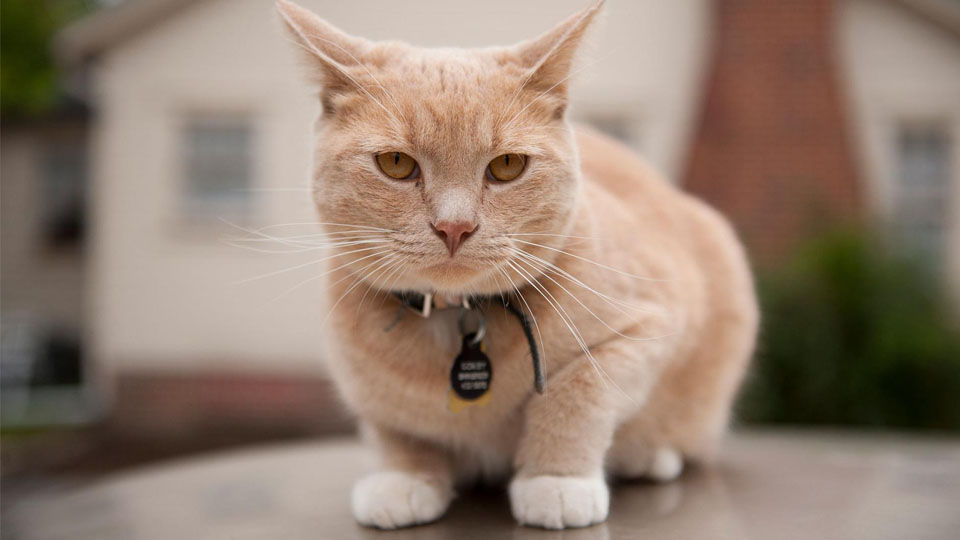In this week’s Pet Talk, Maneka tells how to snake-proof one’s house and suggests remedies for snake bite
By Maneka Gandhi
I have just brought a stray cat home. Her coat is very dull. What can I do?
Since medical issues could be to blame, it’s important to act quickly. Have your cat checked by a vet as soon as possible. If allergies, infections, or other disorders, are ruled out, you can move on to other causes of your cat’s coat deficiency. The most common cause of dull coats in cats is poor diet. Your cat’s fur and skin need the right amounts of vitamins, minerals, carbohydrates, proteins, and essential fats to remain healthy and shiny. If the amounts get out of balance, dry skin and dull fur will result. Since she has come from the road, she will need good food to bring her to optimum health.
Some cats need some help with grooming, whether it’s because of weight, injury, old age, or a disease like arthritis that makes it difficult to reach certain areas. Give your cat a hand; brush her regularly with a good-quality cat brush. This removes mats and tangles in the fur and spreads essential skin oils through the coat, keeping it healthy and shiny. Don’t overdo bathing. If you bathe your cat too regularly, it will backfire and dry out the skin. When the essential skin oils are removed, the fur becomes dry and dull. Most cats only need a bath every couple of months at the most. Be sure you’re using a cat-specific shampoo, as human shampoo will be too harsh on your cat’s sensitive skin.
How to keep snakes away from your house or how to snake proof one’s house?
Ensure that your garden/lawn is tidy with shrubs kept away from the house. Snakes will shelter under shrubs and in timber stacks to avoid the hottest parts of the day. It is also important to ensure that food scraps are disposed of properly to discourage rats and mice, as snakes are attracted to places where they can find rodents. Blocking off as many potential access points as possible can significantly reduce the chance of snakes entering your house. Install screens on doors and windows. Block any holes around the house, including those between the roof and ceiling. Extra care should be taken during summer when the snakes are most active. In areas that experience flooding, snakes will move to higher ground during a flood. Take extra precautions at these times.
Are venomous snake bites curable?
There are two phases in the treatment of snake bites.
- The emergency treatment on site and during transport to an appropriate health care facility.
- The health care facility stabilises the patient, administers antivenin if deemed necessary, and provides supportive treatment.
Phase one of snake bite treatment: In the past there have been many home remedies and treatments, along with snake bite kits and other treatment methods, many of which have been shown to make the effects of the snake bite worse. Consequently, guidelines have been issued, used after the threat of additional bites to the patient or others is eliminated, about what to DO and what NOT TO DO if a snakebite occurs.
Following are the recommendations: i. Seek medical attention as soon as possible; ii. Try to remember the colour and shape of the snake, which can help with identification and treatment of the snake bite; iii. Keep still and calm.
This can slow down the spread of venom; iv. Apply first aid if you cannot get to the hospital right away; v. Lay or sit down with the bite below the level of the heart; vi. Wash the bite with soap and water; vii. Cover the bite with a clean, dry dressing.
Do NOT do any of the following: i. Do not pick up the snake or try to trap it; ii. Do not wait for symptoms to appear if bitten, rather seek immediate medical attention; iii. Do not apply a tourniquet; iv. Do not slash the wound with a knife; v. Do not suck out the venom; vi. Do not apply ice or immerse the wound in water; vii. Do not drink alcohol as a painkiller; viii. Do not drink caffeinated beverages; ix. Others suggest no use of electric shocks for any snake bite.
Phase two of snake bite treatment: The second phase of treatment consists of stabilisation and supportive care and, when medically indicated, administration of antitoxin (antivenin) specific for the snake species and a tetanus booster vaccine. A good practice is to call your local poison control centre or the national Poison Help line AIIMS, New Delhi (1800 116 117), and also to consult a toxicologist and a surgeon to help care for the patient. Certain patients may require surgical treatment and admission to the hospital.
The treatment of non-venomous snake bites includes local wound care at the site of the bite, removing snake teeth if left in the bite site, attending to any trauma at the bite site, and a tetanus booster if needed. Some wounds may become infected and require additional treatment with antibiotics.
How often should I bathe my cow? What type of soap should be avoided?
It depends upon the conditions you keep your cow in. If the surroundings are muddy, or you keep her standing in her own dung, both of which should not happen, then you should give her a shower every second day. If you keep her clean and healthy, once in a month is more than enough. The hindquarters, thighs and udder should be washed thoroughly before milking. It is advised to avoid detergent soap for washing.
How much water does a cow drink every day?
Up to 50 litres, so you should have a water trough of fresh clean water so she has free access to water whenever she wants. Make a system with a tap so that a valve turns on to refill the trough with more fresh clean water.
Why does my dog vomit yellow foam?
A dog may vomit yellow foam simply because his stomach is empty and the bile can be irritating. Even with an intestinal blockage, your dog may vomit yellow mucus because there is something obstructing his intestines. This can be avoided by giving the dog frequent meals in small quantities. If there’s something in the vomit besides yellow foam, it may help to take a sample to your veterinarian and get your dog checked by a vet.








Recent Comments